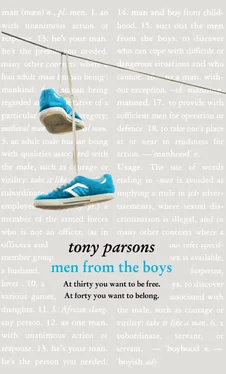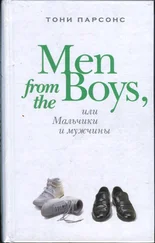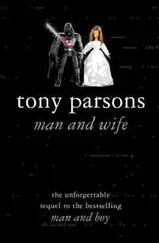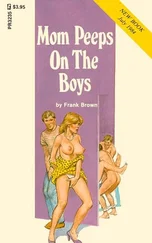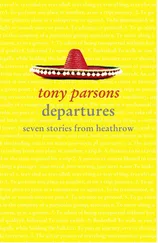We were being nice to each other. For the sake of our son. We were trying to be mature grown-ups and keep the party polite.
If you had glanced at us on the street, then you would have taken us for a couple. But it was as if there was somebody walking between us, keeping us almost ludicrously apart, making accidental physical contact impossible.
For we walked the way that old lovers do.
‘It’s so beautiful, this city,’ she said, smiling at the gypsy glamour of the barges and the tugs on the Thames. ‘You forget how beautiful. Why is that? Why do we forget? I walked down here with Pat last weekend. And he got it. A lot of boys his age – they wouldn’t get it, would they? But he definitely got it.’
I was used to the way she looked now. I had got my head around it. It wasn’t complicated. She was a good-looking woman in her forties and everything we had lost was so long ago that it hardly even hurt. It wasn’t pain any more. It was more like a memory of pain. I was relieved that we would never have to go through it again.
Besides, when she had suggested meeting, I had been expecting this kind of stuff. The forgotten beauty of our city. The remembered beauty of our son. Philosophical Gina, who had somehow achieved enlightenment while she was working as a translator in Tokyo. That is what I had been expecting. Reflective Gina – sighing at the tugs and the barges and something our son had said.
Maybe even an apology or two. Why not? That would be nice, I thought. For the years wasted on useless men and pointless jobs and faraway places with strange-sounding names. An apology on behalf of her – and all absent parents just like her – for the time when their child wasn’t top of the list. It was a good job I wasn’t bitter.
But she surprised me. She could do that now, because we no longer really knew each other. It wasn’t like when we were married and you pretty much knew what was coming next.
‘I don’t like him taking this medication,’ she said. ‘It’s not right. A teenage boy taking pills every day of his life.’
‘Thyroxine,’ I said. And I actually laughed. ‘You make it sound as though he’s raiding the medicine cabinet. You make it sound as though the kid lives for chemical kicks.’
She frowned at me. ‘No need to get excited,’ she said, with a disapproving pout of her lips. Did she used to do that? I didn’t remember that move. Someone had taught her that gesture. It was nothing to do with me.
I took a breath. I could do this thing. I could get through this conversation without my head exploding. Probably. We were mature grown-ups. If we were any more mature, we would be fossilised.
‘Pat was sick, Gina,’ I said quietly. ‘As soon as he started big school. He was flattened by – whatever it was. Just exhausted.’
‘We spoke, remember?’ she said coldly. ‘I knew all about it.’
‘But you didn’t really,’ I said. ‘Because you weren’t here. You were in Tokyo. You were busy with your new job or the new guy in Shibuya.’
‘You can’t argue, can you?’ she said, turning to face me. She had forgotten about the beauty of the eternal river. ‘You never learned to argue in a civilised fashion. And it was Shinjuku not Shibuya. And it wasn’t some new guy – it was exactly the same useless bastard that I was with in London.’
‘My apologies,’ I said. And then I was quiet, because I thought about the school year slipping away as Pat stayed in his room, only emerging to haul himself into a cab to see yet another doctor or paediatrician. And I remembered almost sobbing with gratitude when we discovered that he had a thyroid condition that was easily rectified, and that he wasn’t going to die. And I understood that there is nothing in this world that has the power to slaughter your heart like having a sick child. Sorry, Gina, but no woman can kill you like that.
‘The pills make him well,’ I said, very quietly, because I felt so very much like shouting. ‘The pills are nothing. I appreciate your concern, Gina. But he needs them.’
She touched my arm. Patted it twice, and then sort of stroked it with the middle joint of her index finger. That was new too. I quite liked it. We smiled at each other, and turned to look at a barge floating by as if on air. She was right. It was beautiful.
‘Harry?’
‘What?’
‘Why are you so angry?’ she said.
‘Because you didn’t put him first,’ I said. ‘It doesn’t matter what else was going on. New man, new job, new life. He should have been top of your list. And he wasn’t.’
A kind of laugh. ‘Was he top of your list when you were on top of that little slut from work?’
‘One night, Gina.’
‘One night is plenty.’ She shook her head and looked at all the painted barges. ‘Don’t act as though you were burned at the stake, Harry. You were the one who fucked around.’
Ah yes.
There would always be that.
After the show I was in the studio with Marty talking about airport security. I sat on the desk among the dead microphones, all of them a different primary colour. Like the Teletubbies. Marty swung in his chair, his hands stuffed deep inside his combat trousers.
‘When they stop some little old lady who looks like your granny,’ I said.
Marty grimaced. ‘When they stop some little old lady who looks like your granny but they don’t stop the guy who looks like Osama bin Laden.’
I laughed bitterly. ‘The way they don’t let you carry a pair of nail scissors on board in case you burst into the cockpit and give the pilot a quick pedicure.’
Marty laughed at the insanity of the lousy modern world. ‘The way they don’t let you carry a pair of nail scissors on board but they will flog you a bottle of duty-free booze and nobody bats an eyelid.’
‘And what would you rather be attacked with?’ I asked. ‘A dinky pair of nail scissors or a broken bottle of Johnny Walker Blue Label?’
‘Let me think about it for a bit,’ Marty said. He swung in his chair. ‘Shouldn’t we be writing some of this down? It’s all good stuff.’
‘You’ll remember it,’ I said.
Marty looked over at the gallery. Josh had gone home. The sound engineer had gone home. But through the big glass window we could see some young guy with glasses staring at us. He had a rockabilly haircut and his quiff stood up like a shark’s fin.
I didn’t recognise him. But that was the BBC for you. There were always new kids fresh from their firsts at Oxford and Cambridge turning up to fetch us a sausage roll.
‘Fancy a cup of char?’ Marty asked me, and made a ‘T’ sign with his hands towards the booth. The young guy with glasses and the shark’s fin quiff just stared at us. Marty impatiently banged the top part of the ‘T’ down on the bottom part. The sap on the other side of the glass just smiled weakly, shaking his head. He held up a hand – please wait, o mighty one – and came through to us, his cheeks a rosy glow.
‘Come on, you thick bastard,’ Marty barked at him, swinging his feet up on the desk. ‘You’re not taking a punt down the River Cam now. There’s no Bollinger on the lawn with the rowdies from the Bullingdon Club.’ Marty had dropped out of a comprehensive in Croydon. ‘This is the real world. Tea for two and be sharp about it.’
The young man laughed. ‘I’m terribly sorry,’ he said. They were all posh boys. And even the ones who weren’t posh boys had mastered the accent, if nothing else. ‘I should have introduced myself but I didn’t want to interrupt your editorial meeting.’ He glanced at me, as if I might help him out. ‘Blunt,’ he said. ‘Giles Blunt. Controller of Editorial Guidelines.’
I shook his hand. It was soft and wet as the River Cam. Marty was fabulously unmoved.
Читать дальше
